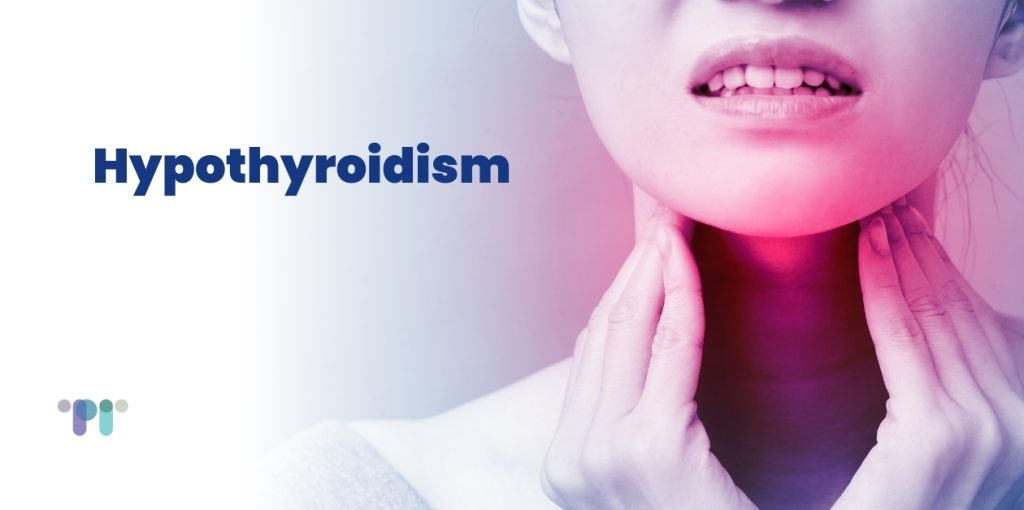The Shocking Impact of Hypothyroidism

Hypothyroidism, often referred to as an underactive thyroid, is a fairly common condition where your thyroid gland doesn’t produce enough of those essential thyroid hormones. These hormones play a crucial role in managing your metabolism, energy levels, and a host of other bodily functions. At Pi Health Hospital, we’re dedicated to diagnosing and treating thyroid disorders, helping our patients find hormonal balance and enhance their quality of life.
Common Symptoms of Hypothyroidism
The symptoms of hypothyroidism can creep up on you and are frequently mistaken for other health problems. Here are some common signs to watch out for:
– Fatigue or low energy
– Bradycardia
– Unexplained weight gain or general puffiness
– Hair loss
– Hoarseness
– Cold intolerance
– Dry skin and brittle nails
– Depression or mood swings
– Constipation
– Memory issues or difficulty concentrating (often called “brain fog”)
– Menstrual irregularities
If you’re experiencing several of these symptoms, it might be a good idea to book a thyroid screening at Pi Health Hospital.
Causes of Hypothyroidism
The leading cause of hypothyroidism is Hashimoto’s thyroiditis, an autoimmune disorder where the immune system mistakenly attacks the thyroid gland. This condition is the primary culprit for hypothyroidism in many regions where iodine intake is adequate.
Other potential causes include:
– Iodine deficiency
– Certain medications, such as:
– Lithium
– Amiodarone
– Radiation therapy to the neck or head
– Thyroid surgery (thyroidectomy) — whether partial or complete removal of the thyroid gland
– Congenital hypothyroidism (present at birth)
– Genetic predisposition — having a biological parent or sibling with the condition can increase your risk
– Pregnancy — which can lead to postpartum thyroiditis and either temporary or permanent hypothyroidism
– Secondary hypothyroidism — caused by issues with the pituitary gland, such as:
– Pituitary tumors
– Pituitary surgery
– Bleeding (e.g., Sheehan’s syndrome)
Why Early Diagnosis Matters
If left untreated, hypothyroidism can lead to some serious health complications, including:
– Heart disease
– Infertility
– Miscarriage and birth defects
– Coma (in severe cases)
– Myxedema — a rare but life-threatening condition
Early detection is crucial when it comes to thyroid health. A straightforward blood test that measures TSH (Thyroid Stimulating Hormone) can help spot hypothyroidism. Additionally, low levels of thyroid hormones like T4 (thyroxine) are often checked to confirm the diagnosis and gauge its severity.
Comprehensive Thyroid Care at Pi Health Hospital
At Pi Health Hospital, we offer a complete suite of diagnostic and evaluation services for thyroid issues:
- Thyroid Function Tests
TSH (Thyroid Stimulating Hormone)
Free T4 and Total T4
T3 levels (as needed)
These tests are essential for understanding how well your thyroid is functioning and figuring out the best treatment plan.
- Advanced Imaging Services
Thyroid Ultrasound — to identify nodules, inflammation, or enlargement of the gland
CT Scan — for detailed imaging in complex or unclear situations
Thyroid Uptake Scan (Radioactive Iodine Uptake Test) — to assess thyroid function and spot any abnormalities, whether the gland is overactive or underactive
- Personalized Medical Evaluation
In-depth assessments by our skilled endocrinologists
Customized treatment plans based on lab results, imaging, and your unique medical history
At Pi Health Hospital, we prioritize early detection, precise diagnosis, and effective management of hypothyroidism, all aimed at helping you lead a healthier, more balanced life.
Lifestyle Tips for Managing Hypothyroidism
Alongside medication, making some lifestyle adjustments can really benefit your thyroid health:
– Enjoy a balanced diet that includes iodine, selenium, and zinc
– Stay active with regular exercise to help boost your metabolism
– Find ways to manage stress, like practicing yoga or meditation
– Ensure you’re getting enough sleep
Our nutritionists and health coaches at Pi Health Hospital are here to help you create a thyroid-friendly lifestyle.
Subclinical Hypothyroidism
At Pi Health Hospital, we combine medical expertise with compassionate care. Our team of endocrinologists and support staff are dedicated to providing:
- Accurate diagnosis
- Customized treatment plans
- Continuous follow-up and support
- State-of-the-art thyroid testing and imaging
With us, you’re not just a patient — you’re a partner in your health journey
Prognosis: Can Hypothyroidism Be Cured?
Right now, there’s no permanent cure for hypothyroidism, but it can be effectively managed through hormone replacement therapy, usually with levothyroxine.
Is Hypothyroidism a Lifelong Condition?
In most cases, yes, hypothyroidism is a lifelong condition. Once you’re diagnosed, you’ll likely need to take daily medication for the rest of your life to keep your thyroid hormone levels in check and avoid symptoms from coming back. However, with the right treatment and regular check-ups, people with hypothyroidism can enjoy healthy, normal lives.
Why Choose Pi Health Hospital for Thyroid Care?
At Pi Health Hospital, we focus on a holistic and patient-centered approach to managing hypothyroidism. Our experienced endocrinologists, cutting-edge diagnostic tools, and tailored treatment plans ensure you get the best care possible.
Schedule your thyroid screening today and take the first step toward a healthier you!
About Author
Dr. Y Swetha
MBBS , MD (General Medicine)
Dr. Y Swetha is a skilled physician currently practicing at PI Health Cancer Hospital. She holds an MBBS from Kamineni Institute of Medical Sciences and an MD in General Medicine from Prathima Institute of Medical Sciences.Dr. Swetha has extensive experience in outpatient, inpatient, emergency, and critical care settings. She is proficient in managing chronic conditions, critical emergencies, and advanced procedures such as ventilator management and catheter placements.

